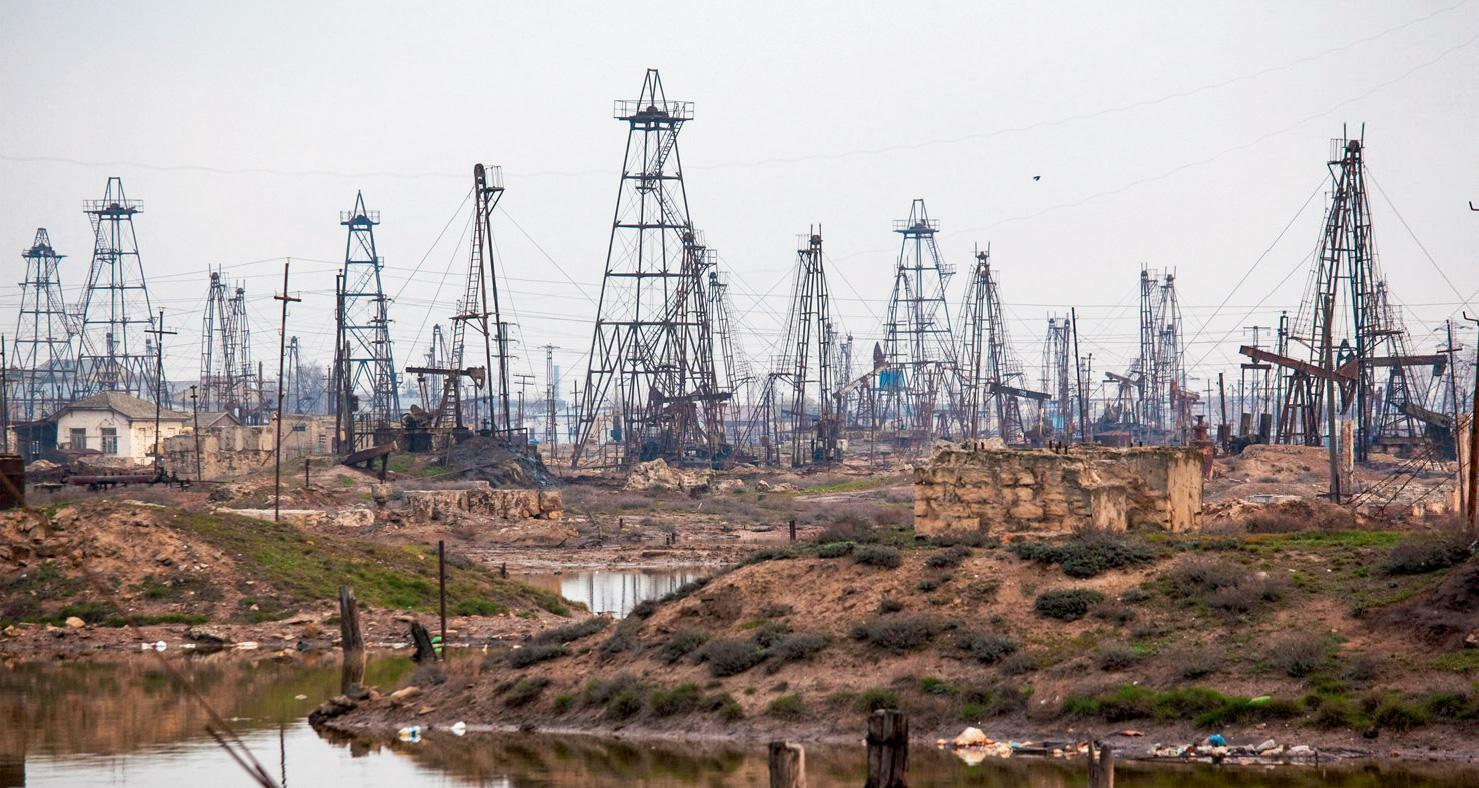
The smell of it greets visitors on arrival, and from the shores of the Caspian Sea on which the city is built the tankers are eternally visible. Flares from refineries light up the night sky, and you do not have to travel far to see fields of "nodding donkeys", small piston pump oil wells about 6 metres tall, that look almost festive in their bright red and green livery.
It will be an interesting setting, in a few months' time, for the gathering of the 29th UN climate conference of the parties.
Mukhtar Babayev, Azerbaijan's minister of ecology who will chair the two-week summit, likes to position the country at the crossroads of the world. He says it can provide a bridge between the wealthy global north and the poor global south; as a former Soviet bloc country, between east and west; and between its fellow oil and gas producers, and the countries that provide its export market.
Azerbaijan is where the world's first oil wells were dug in the 1840s, more than a decade before the US dug its first well. It is one of the most fossil fuel dependent economies in the world: oil and gas make up 90% of its exports, and provide 60% of the government's budget.
This brought riches. "Oil and, more recently, gas have been largely responsible for the remarkable rise in living standards in Azerbaijan since the late 1990s," according to the International Energy Agency.
But the country is moving to renewable energy, with plans to expand wind and solar energy. An interconnector is planned, to bring this low-carbon power to eastern Europe, under the Black Sea to Bulgaria, Hungary and Romania.
"Azerbaijan would like to share our experience," Babayev said. "We would like to invite all the countries, especially the fossil fuel producing countries, to be together in this process. Because we understand our responsibility. We think that we can do more, and together."
This story is from the {{IssueName}} edition of {{MagazineName}}.
Start your 7-day Magzter GOLD free trial to access thousands of curated premium stories, and 9,000+ magazines and newspapers.
Already a subscriber ? Sign In
This story is from the {{IssueName}} edition of {{MagazineName}}.
Start your 7-day Magzter GOLD free trial to access thousands of curated premium stories, and 9,000+ magazines and newspapers.
Already a subscriber? Sign In

If kids get protected from online harm, how about the rest of us?
The Australian government has proposed a ban on social media for all citizens under 16.

'It's not drought - it's looting'
Spain is increasingly either parched or flooded - and one group is profiting from these extremes: the thirsty multinational companies forcing angry citizens to pay for water in bottles.

Life in the grey Zone
Neonatal care has advanced so far that babies born as early as 21 weeks have survived. But is this type of care always the right thing to do?

Out of tune? Band Aid under fire for Africa tropes as it turns 40
Forty years ago this month, a group of pop stars gathered at a west London studio to record a single that would raise millions, inspire further starry projects, and ultimately change charity fundraising in the UK.

Deaths shine spotlight on risks of drinking on party trail
Vang Vieng is an unlikely party hub. Surrounded by striking limestone mountains and caves in central Laos, it morphed from a small farming town to a hedonistic tourist destination in the early 2000s.

Different strokes My strange and emotional week with an AI pet
Moflin can develop a personality and build a rapport with its owner - and doesn't need food or exercise. But is it comforting or alienating?

Strike zone Waking up to the rising threat of lightning
When the Barbados National Archives, home to one of the world's most significant collections of documents from the transatlantic slave trade, reported in June that it had been struck by lightning, it received sympathy and offers of support locally and internationally.

Cheap pints and sticky carpets: the old-school pub is back
In the Palm Tree pub, east London, barman Alf is taking only cash at the rattling 1960s till.

Brain gain Can a radical tax scheme convince the country's brightest to stay?
In the autumn of 2018, I moved to Lisbon for a month-long course at the Universidade .de Lisboa.

Fear and sympathy in small town divided over asylum camp
A year after anti-immigration riots, a site for asylum seekers faces hostility while some locals try to help new arrivals